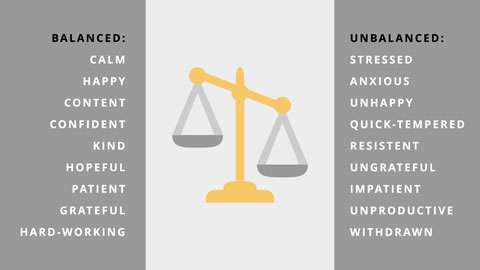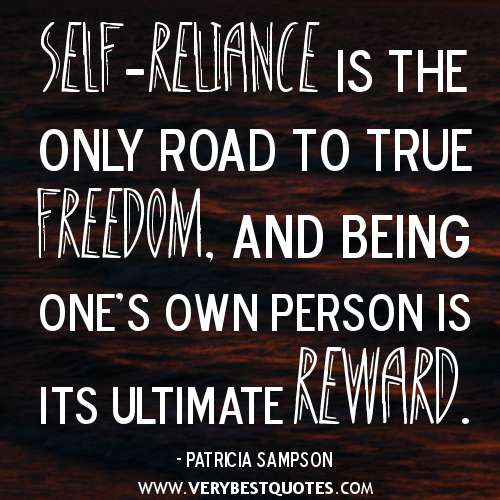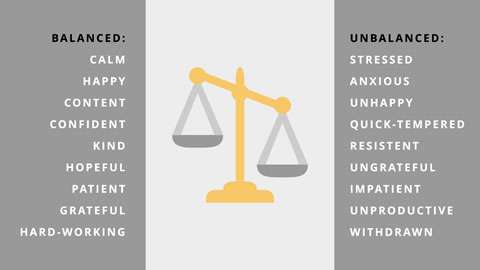In this article, we will be discussing the importance of emotional self-sufficiency and what it means to be emotionally self-sufficient. We’ll explore the concept in the context of off-grid living and how it relates to your overall well-being. By the end of this article, you’ll have a better understanding of emotional self-sufficiency and its significance in maintaining a balanced and positive mindset.
The Importance of Emotional Self-Sufficiency

Understanding Emotional Self-Sufficiency
Emotional self-sufficiency refers to the ability to navigate and manage our emotions independently, without relying heavily on external sources for validation or support. It is about developing the skills and mindset to regulate our emotions, solve problems, and find inner strength and contentment. When we are emotionally self-sufficient, we have the tools to understand and manage our own emotions, regardless of external circumstances.
Defining Emotional Self-Sufficiency
Emotional self-sufficiency is characterized by a sense of inner stability and resilience. It involves being able to recognize and accept our emotions, build emotional awareness, and cultivate the ability to regulate our emotions in a healthy way. It doesn’t mean suppressing or ignoring our emotions, but rather being able to acknowledge and process them in a constructive manner.
Importance of Emotional Self-Sufficiency
Emotional self-sufficiency is crucial for our overall well-being and personal growth. When we are emotionally self-sufficient, we are less likely to depend on others for validation or to give us a sense of worth. We become more resilient in the face of challenges, better equipped to handle stress and adversity. Emotional self-sufficiency also enhances our relationships, allowing us to develop healthier connections based on mutual respect and understanding.
Differentiating Emotional Self-Sufficiency from Dependency
Emotional self-sufficiency should not be confused with emotional detachment or isolation. It is about being able to regulate our emotional experiences in a healthy and balanced way. On the other hand, emotional dependency involves relying on others for constant emotional support, validation, or happiness. While connection and support from others are essential, emotional self-sufficiency ensures that we do not become overly dependent on others for our emotional well-being.

Developing Emotional Resilience
Recognizing and Accepting Emotions
The first step in developing emotional self-sufficiency is to recognize and accept our emotions without judgment. This involves identifying and understanding what we are feeling, and allowing ourselves to experience those emotions without pushing them away or trying to suppress them. By acknowledging our emotions, we can begin to understand their triggers and patterns.
Building Emotional Awareness
Emotional awareness is the ability to recognize and understand our own emotional state as well as the emotions of others. Developing emotional awareness involves paying attention to our thoughts, feelings, and physical sensations, and how they all interconnect. This awareness helps us gain insight into what triggers certain emotions and how they impact our behavior.
Cultivating Emotional Regulation Techniques
Emotional regulation is the process of managing our emotions in a healthy and adaptive way. It involves finding strategies to cope with intense emotions, such as deep breathing exercises, meditation, journaling, or engaging in activities that bring us joy and relaxation. By developing effective emotional regulation techniques, we can prevent emotions from overwhelming us and maintain a sense of balance and stability.
Enhancing Emotional Intelligence
Understanding the Components of Emotional Intelligence
Emotional intelligence encompasses a set of skills that enable us to understand and manage both our own emotions and the emotions of others. It is composed of four key components: self-awareness, self-management, social awareness, and relationship management. Developing emotional intelligence enhances our emotional self-sufficiency by improving our ability to navigate and respond to emotions effectively.
Improving Self-Awareness and Self-Management
Self-awareness is the foundation of emotional intelligence. By developing a deep understanding of our own emotions, strengths, weaknesses, and values, we can better navigate our emotions and make informed decisions. Self-management involves using this self-awareness to regulate emotions, control impulses, and adapt to changing situations.
Mastering Social Awareness and Relationship Management
Social awareness is the ability to understand and empathize with others’ emotions and perspectives. It involves actively listening, being aware of nonverbal cues, and recognizing emotional dynamics in social interactions. Relationship management focuses on building and maintaining healthy relationships based on effective communication, conflict resolution, and empathy.

Boosting Mental Well-Being
Exploring the Connection between Emotional Self-Sufficiency and Mental Health
Emotional self-sufficiency plays a crucial role in maintaining good mental health. When we are emotionally self-sufficient, we can effectively manage stress, cope with challenges, and maintain a positive outlook. This resilience enables us to navigate life’s inevitable ups and downs with greater ease, reducing the risk of developing mental health issues such as anxiety and depression.
Implementing Self-Care Practices
Self-care is an essential aspect of emotional self-sufficiency. It involves prioritizing activities and habits that promote our well-being, such as getting enough rest, eating nutritious food, engaging in regular exercise, and finding time for hobbies and relaxation. Taking care of ourselves physically, mentally, and emotionally replenishes our energy and strengthens our emotional resilience.
Seeking Support When Necessary
While emotional self-sufficiency is about developing our own inner resources, it is important to recognize that seeking support is not a sign of weakness. Sometimes, external guidance or professional help can provide valuable insight and assistance in challenging times. Knowing when to seek support and reaching out to trusted friends, family, or mental health professionals is an important aspect of maintaining emotional well-being.
Fostering Positive Relationships
Recognizing Codependency
Codependency is an unhealthy reliance on others for emotional needs and self-worth. It is characterized by enabling behavior, lack of boundaries, and a sense of being responsible for others’ happiness. Fostering positive relationships requires recognizing and addressing codependent patterns, ensuring that we maintain a healthy level of independence and interdependence in our connections with others.
Setting Healthy Boundaries
Setting healthy boundaries is crucial for maintaining healthy relationships. Boundaries define what is acceptable and unacceptable in terms of behavior and interaction. By setting and communicating our boundaries, we protect our emotional well-being and ensure that our needs and values are respected. Setting healthy boundaries fosters a sense of autonomy and allows for more authentic and fulfilling connections.
Nurturing Empathy and Understanding
Emotional self-sufficiency does not mean closing ourselves off from others. It involves nurturing empathy and understanding towards others, while still maintaining a sense of self. Cultivating empathy allows us to connect with others on a deeper level, fostering more meaningful relationships and promoting mutual support and growth.

Embracing Personal Growth
Challenging Limiting Beliefs
Limiting beliefs are self-imposed barriers that hold us back from reaching our full potential. They are often rooted in fear and negative self-perception. Embracing emotional self-sufficiency involves challenging and reframing these limiting beliefs, replacing them with empowering thoughts that encourage personal growth and resilience.
Embracing Change and Adaptability
Emotional self-sufficiency requires flexibility and adaptability in the face of change. Embracing change involves recognizing that life is constantly evolving, and being open to new experiences and perspectives. By embracing change, we develop a growth mindset that allows us to navigate life’s uncertainties with confidence and grace.
Continuing Self-Development
Personal growth is an ongoing journey. It involves actively seeking opportunities for learning, self-reflection, and self-improvement. By committing to lifelong learning and personal development, we expand our emotional intelligence, cultivate resilience, and continually enhance our emotional self-sufficiency.
Navigating Life’s Challenges
Developing Problem-Solving Skills
Life presents various challenges, and developing problem-solving skills is essential for emotional self-sufficiency. It involves analyzing problems, generating creative solutions, and taking action to address them. By mastering problem-solving skills, we become more self-reliant and confident in our ability to overcome obstacles.
Coping with Stress and Adversity
Stress and adversity are inevitable parts of life, and emotional self-sufficiency helps us cope effectively. Implementing stress management techniques, such as practicing mindfulness, engaging in relaxation exercises, and seeking social support when needed, enables us to navigate stressful situations with resilience. By viewing adversity as an opportunity for growth rather than a setback, we develop a more positive outlook and approach to challenges.
Maintaining a Positive Outlook
A positive outlook is a key component of emotional self-sufficiency. It involves cultivating optimism, gratitude, and resilience in the face of adversity. By focusing on the positive aspects of life, practicing gratitude, and reframing negative thoughts, we can maintain a positive perspective and enhance our emotional well-being.

Promoting Emotional Independence
Society’s Influence on Emotional Dependency
Society plays a significant role in shaping our beliefs and attitudes towards emotional dependency. Cultural norms and societal expectations often reinforce the idea that our emotional well-being is dependent on external factors such as appearance, achievements, or the opinions of others. Promoting emotional independence involves challenging these societal influences and cultivating a sense of self-worth that is not reliant on external validation.
Teaching Emotional Resilience to Children
Nurturing emotional resilience in children is crucial for their long-term well-being. By teaching children to recognize and manage their emotions, solve problems independently, and develop healthy self-esteem, we equip them with the tools to become emotionally self-sufficient adults. Encouraging open communication and validating their emotions helps children build resilience and adaptability from an early age.
Encouraging Authenticity and Self-Expression
Encouraging authenticity and self-expression is fundamental for emotional self-sufficiency. It involves creating an environment that values individuality, where individuals feel safe to express their emotions, thoughts, and opinions without fear of judgment or rejection. By nurturing authenticity, we empower individuals to embrace their uniqueness and build a strong sense of self.
Cultivating Self-Compassion
Understanding the Importance of Self-Compassion
Self-compassion is the practice of treating oneself with kindness, understanding, and acceptance, especially in times of difficulty or failure. It involves acknowledging our own imperfections and shortcomings without self-blame or judgment. Cultivating self-compassion is essential for emotional self-sufficiency, as it allows us to embrace our humanity, learn from our mistakes, and foster a positive and nurturing relationship with ourselves.
Practicing Self-Forgiveness and Acceptance
Self-forgiveness and self-acceptance are integral components of self-compassion. By forgiving ourselves for past mistakes and accepting ourselves as flawed individuals, we release the burden of guilt and self-criticism. This practice promotes emotional healing and enables us to move forward with a renewed sense of self-worth and self-compassion.
Embracing Imperfection and Self-Love
Embracing imperfection is an essential aspect of emotional self-sufficiency. We are all imperfect beings, and accepting this reality allows us to let go of unrealistic expectations and self-judgment. By practicing self-love and embracing our flaws, we cultivate a sense of authenticity, inner strength, and emotional well-being.
Overcoming Fear of Vulnerability
Recognizing the Benefits of Vulnerability
Vulnerability is often perceived as a weakness, yet it is a powerful catalyst for personal growth and meaningful connections. Being vulnerable involves exposing our true selves, sharing our emotions, and allowing others to see our vulnerabilities. By embracing vulnerability, we open ourselves up to deeper connections, increased self-awareness, and emotional self-sufficiency.
Building Trust and Authentic Connections
Building trust is essential for embracing vulnerability. Trust involves being honest, reliable, and consistent in our interactions with others. By nurturing trust in our relationships, we create a safe space for vulnerability and emotional exploration. Authentic connections, built on mutual trust and vulnerability, foster emotional self-sufficiency and promote personal growth.
Embracing Vulnerability as a Strength
Embracing vulnerability as a strength involves reframing our perception of vulnerability. Instead of viewing it as a weakness, we recognize it as a courageous act that allows us to show up authentically and connect on a deeper level. By embracing vulnerability, we tap into our true selves and unlock untapped potential for emotional self-sufficiency and personal growth.
Empowering Personal Happiness
Defining Happiness and its Connection to Emotional Self-Sufficiency
Happiness is a subjective experience characterized by a sense of contentment, joy, and fulfillment. Emotional self-sufficiency plays a vital role in personal happiness, as it allows us to cultivate resilience, regulate our emotions, and maintain a positive outlook. By developing emotional self-sufficiency, we become better equipped to navigate challenges and create a life aligned with our values and aspirations.
Finding Joy in Everyday Life
Finding joy in everyday life involves practicing gratitude, focusing on the present moment, and engaging in activities that bring us joy and fulfillment. It requires shifting our attention from external achievements to appreciating the small moments and pleasures that bring us happiness. By finding joy in the simple things, we enhance our emotional well-being and nurture our sense of self-sufficiency.
Creating a Life Aligned with Personal Values
Living a life aligned with our personal values is essential for personal happiness. It involves identifying our core values and making choices that reflect and honor them. By living in alignment with our values, we cultivate a sense of purpose, fulfillment, and authenticity. This alignment fosters emotional self-sufficiency by enabling us to make choices that are true to ourselves, rather than seeking external validation or approval.
Balancing Independence and Interdependence
The Interplay between Self-Sufficiency and Dependency
Balancing independence and interdependence is a delicate dance. While emotional self-sufficiency allows us to navigate our emotions independently, we are still social beings who thrive on connection and support. Achieving a healthy balance involves recognizing when to lean on others, seek support, and foster mutually satisfying relationships while maintaining our own emotional well-being and self-sufficiency.
Striking a Harmonious Balance in Relationships
Striking a harmonious balance in relationships involves nurturing both our independence and our interdependence. It requires setting healthy boundaries, maintaining open and honest communication, and cultivating trust and mutual respect. By fostering a sense of individual autonomy within our relationships, we can develop a strong emotional foundation that supports both our self-sufficiency and our connections with others.
Recognizing when Help is Needed
Emotional self-sufficiency does not mean being completely self-reliant at all times. Recognizing when help is needed is a sign of strength, not weakness. It involves understanding our own limitations and seeking support when necessary. Knowing when to ask for help allows us to maintain our emotional well-being and continue on our journey of personal growth and self-sufficiency.
Unlocking Inner Strength
Discovering and Cultivating Inner Resources
Inner strength is the resilience and fortitude that lies within each of us. Discovering and cultivating these inner resources involves connecting with our core values, identifying our strengths and passions, and practicing self-reflection and self-compassion. By tapping into our inner strength, we enhance our emotional self-sufficiency and unlock our full potential.
Harnessing Resilience and Perseverance
Resilience and perseverance are essential qualities for emotional self-sufficiency. Resilience involves bouncing back from challenges and setbacks, while perseverance is the determination to keep going despite obstacles. By cultivating resilience and perseverance, we develop the ability to navigate life’s challenges with grace and strength, allowing us to thrive even in the face of adversity.
Embracing Challenges as Growth Opportunities
Challenges are not roadblocks; they are opportunities for growth and self-discovery. Embracing challenges involves reframing our perception of difficulties and setbacks as valuable learning experiences. By approaching challenges with curiosity and a growth mindset, we can harness our inner strength and transform obstacles into stepping stones towards emotional self-sufficiency and personal development.
Conclusion
Emotional self-sufficiency is a journey of self-discovery, personal growth, and resilience. By cultivating emotional awareness, regulating our emotions, and nurturing healthy relationships, we can navigate life’s challenges with greater ease and fulfillment. Embracing emotional self-sufficiency enables us to achieve greater happiness, independence, and personal well-being. Remember, you have the power within yourself to develop emotional self-sufficiency and create a life that aligns with your values and aspirations. Embrace personal growth, master emotions, and embrace your own unique journey towards emotional self-sufficiency.




